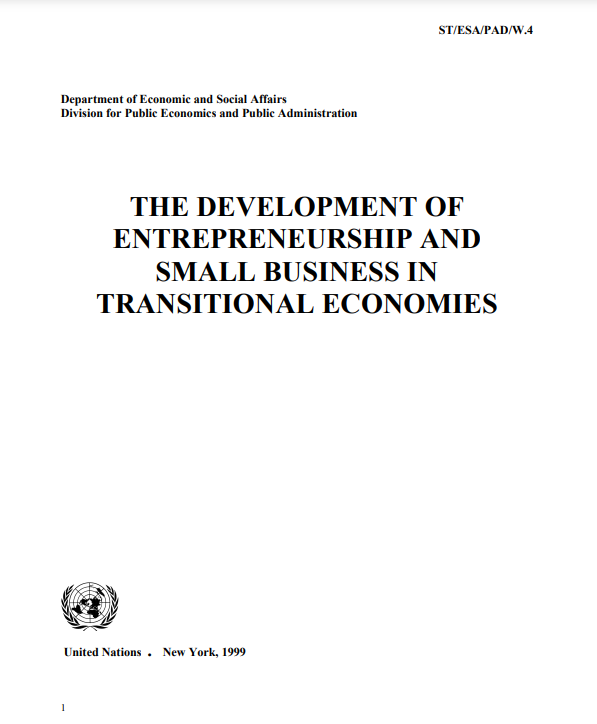
This paper looks at the emergence of small and medium-sized enterprises (SMEs) in the transition economies of Central and Eastern Europe and tries to evaluate the policies that rendered their growth possible. The issues dealt with are as follows: • Development of the institutional and macroeconomic framework conditions for the formation of the private sector; • Development trends of the private sector: the scope and structures of the private sector, the rise of self-employment and the survival chances of the newly emerging private sector; • Limitations and barriers to the development of private sector SMEs-vocational training, management qualifications, financing of enterprises, role of the state administration, implementation of the new economic legal framework and the competitive situation facing SMEs; • State policies relating to SMEs-measures aimed at the improvement of the institutional and infrastructural framework conditions for the fostering of private sector initiative and the enterprise-related policies of the government; • Development of support networks at micro-level establishment of business support centres, transformation of existing support networks; and • Proposal for a national policy on SMEs development-establishment of a National Enterprise Promotion Agency, Regional Enterprise Support Centres and local Satellite Support Centres.
 Welcome to the United Nations
Welcome to the United Nations